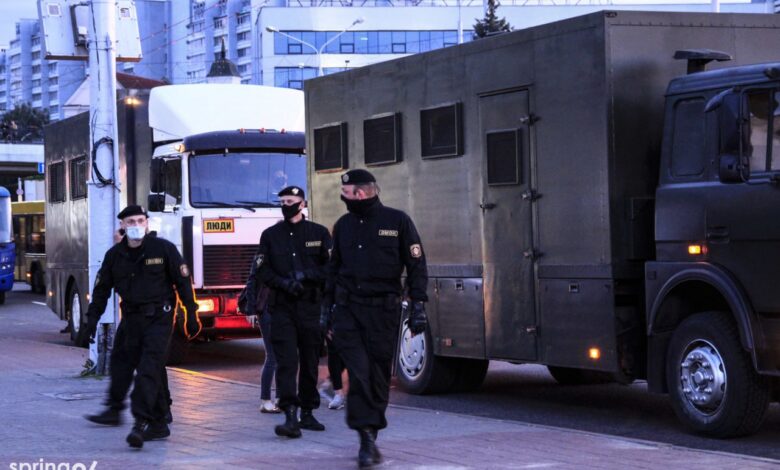“Who is helping you?” Mass KGB raids target political prisoners and their families

On January 23, KGB officers conducted mass searches, interrogations and detentions among families of political prisoners, as well as former political prisoners who had recently been released and remained in the country. According to Viasna, at least 157 people were affected across Belarus.
After the searches, people were detained for interrogation, and then released with a non-disclosure statement. However, not everyone was released; human rights activists are trying to establish the status of some detainees. According to preliminary information, the reason for the KGB’s interest was assistance to the families of political prisoners from the INeedHelpBY initiative, which was recently classified by the authorities as an “extremist group”.
What do we know about the mass searches and detentions?
On January 23, KGB officers started searching apartments of political prisoners’ relatives from the very morning. Some of them came to people’s homes and some came straight to work. After the searches, the security forces took them for interrogation, in some cases the whole family. The phones of some detainees were taken for a “check-up”, and one person was given back the phone with the Magnet Telegram bot installed, which allows the security forces to remotely monitor people’s Telegram.
Administrative cases were opened against those found to have “extremist reposts and subscriptions” or those who allegedly “shouted and waved their hands while talking to police officers”. For example, Marina Adamovich, the wife of political prisoner and ex-presidential candidate Mikalai Statkevich, was sentenced to 15 days for alleged “disorderly conduct”.
Besides, the former political prisoner Aliaxei Ramanau, who had previously been diagnosed with oncology, was not released after detention. He was taken to the KGB for interrogation on suspicion of participating in an “extremist group”.
What it has to do with the INeedHelpBY initiative and supermarket deliveries
It was also reported that the INeedHelpBY initiative, which provided food assistance to the repressed, was classified as an “extremist group”. The initiative’s website states that it has already provided support amounting to 1,551,400 US dollars in around 15,000 cases since 2020. To help, the initiative used the popular delivery services by Hippo and Euroopt. Through them, you can order delivery from the store online and pay either on the website or upon receiving the foodstuffs.
According to human rights activists, it was the help from INeedHelpBY that in many cases interested the security forces. Among other things, the siloviki asked who is helping with packages for the incarcerated family members and who is paying for grocery deliveries. Some were shown printouts of payments from websites, with their phones searched for apps of foreign banks, sometimes they demanded explanations about money transfers to a Belarusian bank card from abroad. The KGB operatives were reported to have viewed payments from Lithuanian and Polish cards and collected information on the payment amounts.
The classification of the initiative as an “extremist group” may have serious consequences for those who turned to them for help. Now, anyone cooperating with INeedHelpBY can face criminal charges for facilitating extremist activity. In this way, the authorities are trying to destroy the solidarity of Belarusians and isolate political prisoners and their families from any help. Human rights activists call for supporting each other in such difficult times in any safe way.
“This is an inadequate response to the legitimate activities of non-profit organizations”

Viasna’s human rights advocate Pavel Sapelka commented on the attack on relatives of political prisoners, and also reminded of security measures that will help to avoid persecution.
The attack on people and initiatives that do not abandon Belarusians without help in difficult circumstances has several goals, such as retaliating for solidarity, attempting to destroy the support infrastructure and intimidate the people involved in this activity.
All the attacks of the regime have nothing to do with the protection of law and order, this is an inadequate response to the legitimate activities of non-profit organizations, however, the authorities do not even try to disguise it anymore. Charitable assistance to people in a difficult situation by definition cannot pose a danger to the constitutional order and the functioning of the state and its institutions. — unless, of course, it is a totalitarian regime that has lost the support of the people and usurped power by force, surviving only through repression.
We advise you to familiarize yourself with the rules of digital security and strictly observe them: do not leave videos, pictures, subscriptions, reposts of materials from resources prohibited by the authorities on your digital devices. After all, it is the failure to follow these recommendations that most often gives grounds for an arrest. If you are in safety, support initiatives to help political prisoners and their families, create and develop a decentralized network of solidarity action.